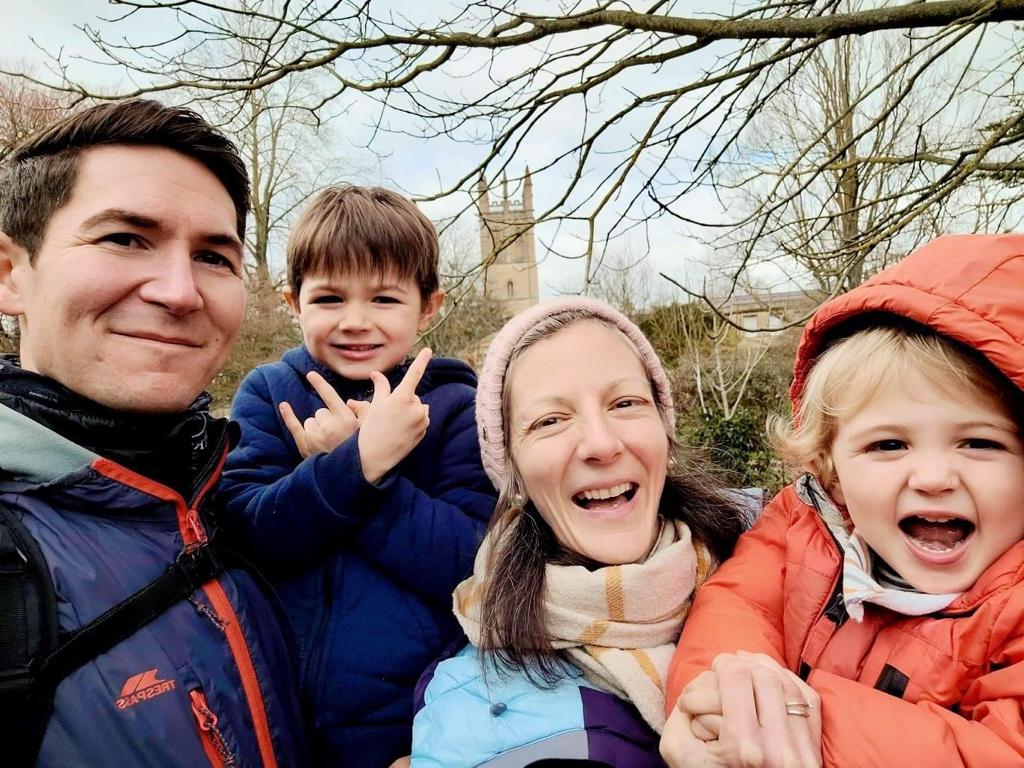
My 2.5-year journey with translocation renal cell carcinoma
April 30, 2024
This is a guest post by Dawn Dyson, 37, who was diagnosed with translocation renal cell carcinoma in 2022. Dawn…
Read More
In honor of our 30th anniversary, we’re catching up with former grant recipients to hear how their work has impacted kidney cancer care and research.
Dr. Raj Gopal is a clinician and researcher at Massachusetts General Hospital in Boston, Massachusetts. He received a 2016 ASCO Conquer Cancer Young Investigator Award, supported by the Kidney Cancer Association. We spoke to Dr. Gopal about his research project –Mitochondrial Profiling in Kidney Cancer – and how it impacted his approach to patients.
What was the inspiration for your research project?
The inspiration for my research comes from a combination of my interest in caring for patients with kidney cancer as well as my fascination for understanding how mitochondria, the “powerhouse of the cell”, contribute to cancer. Kidney cancers are remarkable for their diverse metabolic properties, which range from an abundance of fat to a striking accumulation of mitochondria. When my project was beginning, the underlying molecular features accounting for these distinct metabolic patterns were unknown.
This led to the overarching goal of my ASCO Young Investigator Award, which was to profile mitochondria in different types of kidney tumors with a particular focus on the mitochondrial DNA of these tumors. My project came together thanks to a collaboration that began at Massachusetts General Hospital that included a highly skilled team of clinicians and scientists. This group, which included my research mentor Dr. Vamsi Mootha, provided me with the guidance and stimulation to see the goals of my project come to fruition.
What was the outcome of your research project and have there been further developments?
Our research project was successfully completed, and the work was published in the Proceedings of the National Academy of Sciences journal in 2018. In addition, we have been able to share our findings at kidney cancer conferences as well as clinical grand rounds. There have also been numerous studies from other leading kidney cancer researchers that have supported our findings and further highlighted the importance of mitochondria in kidney tumors. The award provided by the Kidney Cancer Association has been instrumental in helping me launch an early-stage career as a translational scientist and has motivated my research on the role of mitochondria to even expand to other types of cancers, such as thyroid cancer.
How would you say your research project contributed to the field?
Our research project rigorously characterized the status of the mitochondrial DNA in different kidney cancer subtypes. We provided strong evidence that mitochondrial DNA mutations, in addition to alterations in nuclear DNA, can contribute to kidney cancer. Moreover, changes in mitochondrial DNA are likely to underlie the unique histopathology of certain kidney cancer subtypes. We also highlighted the importance of considering what part of the nephron a particular kidney tumor derives from as this can greatly impact its biology as well as our interpretation of its molecular features. Finally, our work helped identify how tumors adapt to mitochondrial alterations and importantly this could help guide future therapeutic strategies for tumors with such mitochondrial abnormalities.
What is most exciting about your research?
It was extremely exciting to uncover that DNA mutations not only in our nuclear DNA, but also in our mitochondrial DNA, contribute to kidney tumor formation. Although the mitochondrial DNA has often been overlooked in genetic studies of cancer, in the case of kidney cancer, our work suggests that it is important to consider the integrity of this additional piece of genetic material. In particular, mutations in mitochondrial DNA are likely to impact the metabolism of certain kidney tumors and account for their mitochondrial abundance on histopathology. Nonetheless, we are only beginning to understand the role that these mitochondrial DNA mutations play in tumor biology and follow-up studies are crucial to understand the impact that these alterations have on patient care. Another exciting aspect of this work is that it nominates new molecular pathways related to mitochondrial metabolism that can be studied as novel therapeutic strategies for kidney cancer.
Did this research project impact your approach to patient care?
This project has impacted my approach to patient care in that it underscored the importance of recognizing that there are different subtypes of kidney cancer. As each form of kidney cancer harbors distinct genetic underpinnings, this recognition helps create a molecular framework that can be used to approach a patient’s kidney tumor. Moving forward, it would be great to see the field continue to build on recent discoveries regarding the unique attributes of each form of kidney cancer and begin to connect such attributes to clinical experiences and possibly even therapeutics.
What is your research focus now?
My current research focuses on understanding the mechanism by which mitochondrial DNA mutations contribute to cancer. Specifically, I am interested in discovering the growth programs that are activated by mitochondrial dysfunction. Moreover, I am intrigued to learn how kidney tumors cope with their malfunctioning mitochondria as such adaptations may provide insight that could benefit the study of degenerative conditions. Finally, another major focus of my research is to test the effect of drugs that perturb mitochondrial metabolism to assess if they may have efficacy in kidney cancer.
Is there anything else you’d like patients and families to know about the impact of your work?
I’d like to thank all of the patients and their families for inspiring my research and for supporting investigators like myself. I continue to find that the most powerful research questions come from observations that can be made through clinical experiences with patients. I believe that the future for kidney cancer care is bright and that the recent progress we have made will help propel us closer to a precision medicine-based practice that will leverage biologic insights to optimize the monitoring and treatment of our patients.